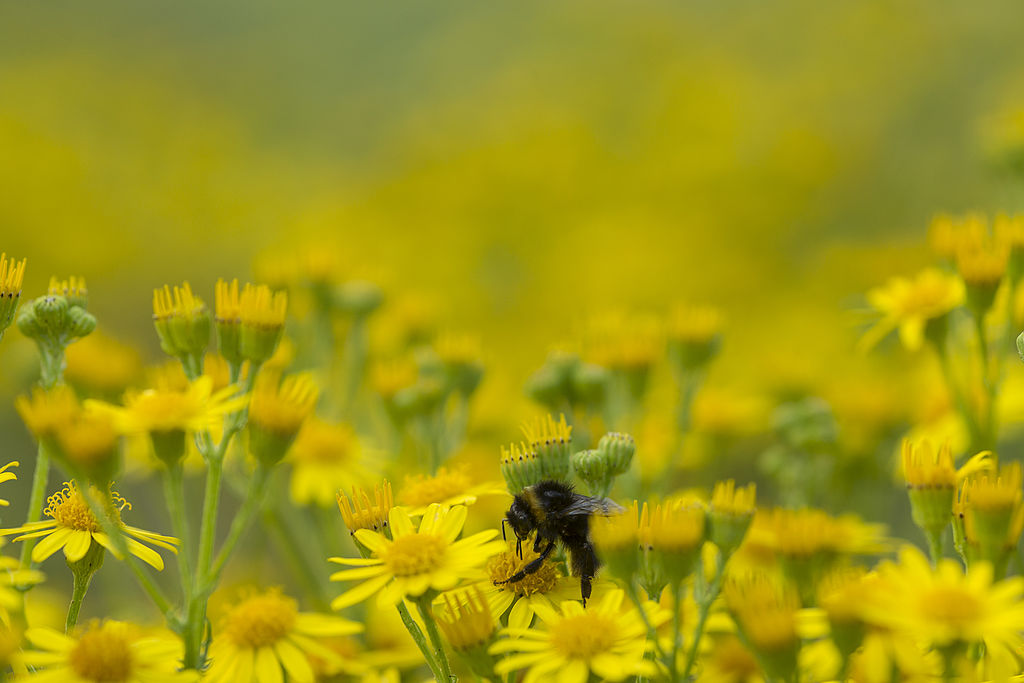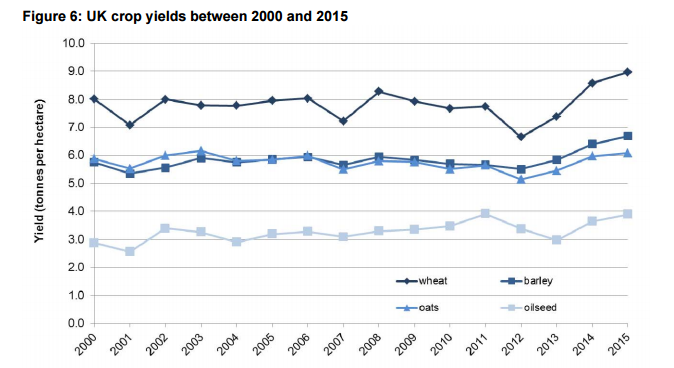Industry lobbyists accused of scaremongering over ban on bee-harming pesticides

Industry predictions of doomed crops resulting from a ban on a controversial pesticide have been dismissed as scaremongering, after official data revealed that yields have actually flourished since the ban.
Pesticide producers and the National Farmers Union (NFU) had warned that a ban on neonicotinoids, a substance linked with declining bee populations, would have a devastating impact on crop yields.
But government figures show that yields of oilseed rape have actually increased significantly since the ban came into force, leading campaigners to label the industry’s predictions as a “particularly bad example of scaremongering”.
Defra’s latest statistics show that last year, yields of oilseed rape increased by 7%, despite restrictions on treating the crop with neonicotinoids.
Elsewhere the Agriculture and Horticulture Development Board noted that 2015 oilseed rape yields were higher than the average for the last decade.
Responding to the figures, Peter Melchett, policy director at the Soil Association, said: “‘This is a particularly bad example of scaremongering by the pesticide industry. Every time a pesticide is found to be a real danger to wildlife or human health, and people rightly start to call for the chemical to be banned, pesticide companies and their representatives claim that farmers will lose their crops.”
“Every single one of these predictions have proved completely wrong,” he said, adding, “you can also be sure that this won’t stop them making these absurd claims in future.”
The news comes as the NFU revealed it has applied to Defra to partially lift the ban on using neonicotinoids for oilseed rape.
The union is pushing to be allowed to use the pesticide in selected areas of Britain, arguing that farmers’ crops will suffer without it.

But Greenpeace can reveal that lobbyists for neonicotinoids have consistently overstated the impact a ban would have on farmers, placing enormous pressure on Defra to oppose restrictions.
In December 2012, Syngenta wrote to then environment secretary, Owen Paterson, to warn that a ban would devastate yields of crops such as oilseed rape by up to 40%.
The figure was based on a Bayer and Syngenta funded study by the Humboldt Forum for Food and Agriculture, an industry-backed think tank, which also estimated a ban would cost the UK economy £630 million a year.
The conclusions of the study were dismissed by MPs from the Environmental Audit select committee in March 2013.
Syngenta, which has lost tens of millions of dollars annually due to the European ban, also issued a warning to the government over its investment in the UK, reminding Owen Paterson, that:
“Syngenta invests approximately £250 million annually in the UK in R&D, manufacturing and our commercial organisations employing more than 2,000 people. We do this because of the Government’s strong support for technology in agriculture and an evidence based approach to regulation. I therefore call on you to resist any attempt to force a quick decision on restricting this technology”.
A month later, the NFU told Paterson that the ban “would also impact on yields, seriously compromising the sustainable production of many EU crops.” It had previously warned Defra that “a ban would result in a significant reduction in yields”.
Paterson agreed, replying that: “Although there are uncertainties, Defra’s assessment suggests that it is highly probable that restrictions on neonicotinoids would carry significant costs for agriculture.”
Defra’s May 2013 impact assessment, which was released following a freedom of information request, estimated that yields would decrease by 26% over a ten year period and cost the UK economy up to £1.2 billion.
Greenpeace has submitted a Freedom of Information request asking for Defra’s latest assessment of the impact of the ban.
When contacted for comment a Syngenta spokesperson said: “As any grower knows, one season’s data is unlikely to be enough to assess the full impact of the neonicotinoid restriction but what we do know is that where cabbage flea beetle pressure was high their crops were severely damaged. On the other hand, the available data suggests that there has been no improvement in bee health since the restriction came into force.”
NFU Vice President Guy Smith said: “The NFU was pleased to see the high yields experienced by many UK growers in 2015. Met office figures show higher than average sunshine levels in the key growing months of April and June in 2015. This contributed to favourable growing conditions and indeed resulted in high yields in some oilseed rape crops. Higher than average yields in 2015 have masked huge yield variability between fields of oilseed rape.”
“The figures do not take into account the fact that some fields of oilseed rape had to be abandoned due to overwhelming pressure from cabbage stem flea beetle (CSFB). These fields produced nothing and, according to research published by Fera, CSFB numbers have been increasing since restrictions were imposed on the use of neonicotinoid seed treatments by the European Commission in 2013. It would be wrong to conclude, therefore, that last year’s yields somehow prove that UK growers did not miss or need neonicotinoid seed dressings”, he said.
But according to the Soil Association: “The evidence we have so far shows that almost all use of neonicotinoids is unnecessary. These highly toxic and dangerous chemicals are being used prophylactically – almost all seeds of some of our most widely grown crops, like wheat, barley and oilseed rape, are automatically treated with these nicotine-based nerve agents.”
“In most years, for most crops, this is completely unnecessary. Such prophylactic use of dangerous chemicals is in theory outlawed under EU Pesticides Regulations”.

